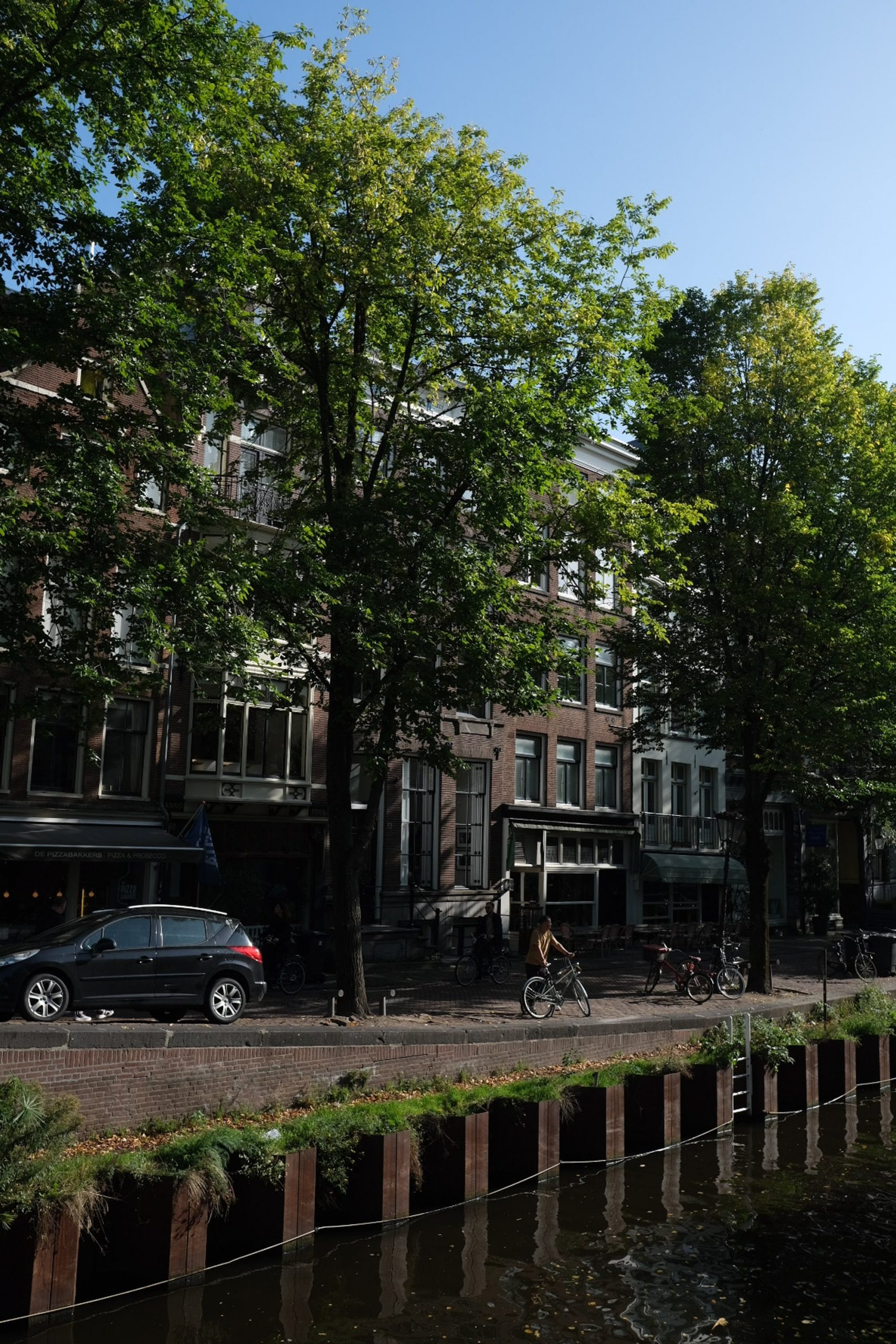Are you considering investing in a mixed-use commercial real estate project in Utah? If so, it’s essential to have a comprehensive understanding of the legal aspects involved. In this article, we will explore the various legal considerations that need to be taken into account when embarking on such projects in Utah. From zoning regulations and permits to financing and contracts, we will delve into the key legal factors that can impact the success of your venture. By familiarizing yourself with these critical legal aspects, you can make informed decisions and ensure a smooth and successful journey in the world of Utah mixed-use commercial real estate. For expert guidance and consultation specific to your project, don’t hesitate to reach out to commercial real estate lawyer Jeremy Eveland.

Zoning and Land Use Regulations
Understanding the zoning laws in Utah
When it comes to mixed-use commercial real estate projects in Utah, understanding the zoning laws is crucial. Zoning laws designate specific areas for different types of land use, such as residential, commercial, or industrial. These regulations play a significant role in determining what you can and cannot do with your property. Familiarizing yourself with the zoning laws in Utah is the first step towards a successful mixed-use development.
Utah follows a zoning system that is designed to maintain a balance between different land uses and protect the interests of both residents and businesses. Zoning ordinances in Utah typically divide land into various zones, such as residential, commercial, and industrial. Each zone has specific regulations regarding the type and intensity of land use permitted.
To understand the zoning laws in Utah, you need to review the zoning ordinances for the specific locality where your project is located. These ordinances outline the various zones, their permitted uses, and any special conditions or requirements for each zone. It is essential to comprehend the restrictions and requirements imposed by the zoning laws to ensure compliance with local regulations.
Complying with local land use regulations
Complying with local land use regulations is essential to avoid legal issues and ensure the success of your mixed-use commercial real estate project in Utah. Local land use regulations may include zoning laws, building codes, and other restrictions specific to the locality. By adhering to these regulations, you can avoid costly fines or even having your project shut down.
To comply with local land use regulations, start by understanding the specific requirements and restrictions outlined in the zoning ordinances. Familiarize yourself with the permitted uses in each zone and ensure that your project aligns with the applicable zoning regulations. If needed, consult with a commercial real estate lawyer to review the regulations and confirm your compliance.
Apart from zoning laws, be aware of other regulations that may impact your project, such as building codes, environmental regulations, and historic preservation requirements. Engage with the relevant authorities and obtain the necessary permits and approvals for your project.
Navigating the process of obtaining zoning permits
Obtaining zoning permits is a crucial step in the development of a mixed-use commercial real estate project in Utah. Zoning permits allow you to carry out specific activities on your property that may not be automatically permitted under the zoning regulations. Navigating the process of obtaining zoning permits requires careful planning and coordination.
To begin the process, determine the zoning district in which your property is located. Review the zoning ordinances to understand the permitted uses in the district and any conditions or restrictions that may apply. Identify the specific permits required for your project, such as conditional use permits or variances, depending on the nature of your development.
Once you have identified the necessary permits, prepare a comprehensive application that includes all the required documentation and information. This may include architectural plans, environmental impact studies, traffic studies, and financial feasibility studies, among others.
Submit your application to the appropriate local government office or planning department. Be prepared for possible public hearings or meetings where you may need to present your project and address any concerns or objections raised by the community. Engaging with the local community early on and addressing their concerns can help smooth the permit approval process.
Throughout the process, consider consulting with a commercial real estate lawyer who can guide you through the complexities of obtaining zoning permits and ensure compliance with local regulations. They can help you prepare a strong application, navigate public hearings, and address any legal issues that may arise.
Permitted Uses and Conditional Uses
Differentiating between permitted and conditional uses
When planning a mixed-use commercial real estate project in Utah, it is essential to understand the difference between permitted and conditional uses. Permitted uses are activities or land uses that are allowed outright under the zoning regulations for a particular zone. Conditional uses, on the other hand, require additional approvals or permits beyond what is allowed for permitted uses.
Permitted uses are typically considered compatible with the intent of the zoning regulations and do not require any further review or hearing. They are the standard activities that can be carried out in a specific zone without any special permissions.
Conditional uses, on the other hand, may be allowed in a particular zone under certain conditions or subject to additional approvals. These uses are typically reviewed on a case-by-case basis to ensure that they do not have a significant negative impact on the surrounding area or other permitted land uses.
Understanding the difference between permitted and conditional uses is crucial when determining the feasibility of your mixed-use commercial real estate project. It helps you identify any potential hurdles or additional requirements that may arise as part of the development process.
Applying for conditional use permits
If your mixed-use project involves a conditional use, you will need to apply for a conditional use permit from the local government or planning department in Utah. Applying for a conditional use permit involves demonstrating that your proposed use meets the specific conditions and requirements outlined in the zoning regulations.
To apply for a conditional use permit, start by reviewing the zoning regulations to understand the conditions and criteria for granting such permits. This may include considerations such as traffic impact, environmental impact, compatibility with surrounding land uses, and the ability to meet specific performance standards.
Prepare a comprehensive application that includes all the necessary supporting documents, such as site plans, architectural drawings, studies, and any other information requested by the local government. Be prepared to address any concerns or objections raised by the community or local authorities during the application process.
Challenges and considerations with conditional uses
Developing a mixed-use commercial real estate project that involves conditional uses can introduce additional challenges and considerations. It is crucial to carefully review the zoning regulations and consult with a commercial real estate lawyer to ensure compliance and minimize potential conflicts.
Some challenges and considerations that may arise with conditional uses include:
-
Public opposition: Conditional uses often face scrutiny from the local community. Engaging with the public early on, addressing concerns, and proactively involving stakeholders can help mitigate opposition and improve the chances of obtaining the necessary approvals.
-
Additional reviews and hearings: Conditional use applications may require additional reviews, public hearings, or presentations to local government boards or commissions. This adds complexity and potentially more time to the approval process.
-
Potential restrictions and conditions: Conditional use permits may come with specific restrictions or conditions that you need to comply with to maintain the permit. These may include limitations on operating hours, parking requirements, noise restrictions, or other performance standards.
By carefully navigating the process of obtaining conditional use permits and addressing any challenges that may arise, you can successfully develop a mixed-use commercial real estate project that incorporates conditional uses in Utah.
Environmental Regulations and Impact Studies
Complying with state and federal environmental regulations
As a responsible developer of a mixed-use commercial real estate project in Utah, it is essential to ensure compliance with state and federal environmental regulations. These regulations are designed to protect natural resources, preserve habitats, and minimize the impact of development on the environment.
Utah has various environmental regulations in place to govern different aspects of development, including air quality, water quality, solid waste management, hazardous materials handling, and land use. Familiarize yourself with these regulations and engage with the relevant authorities to understand the specific requirements for your project.
Compliance with environmental regulations may involve obtaining permits, conducting environmental assessments, implementing best management practices, and monitoring and reporting requirements. Ensure that you have a thorough understanding of the regulations applicable to your project and develop a comprehensive plan to meet the environmental standards outlined.
Conducting environmental impact studies
Conducting environmental impact studies is a crucial component of developing a mixed-use commercial real estate project in Utah. These studies assess the potential impact of the project on the environment and help identify measures to mitigate or minimize any negative effects.
Environmental impact studies typically involve a detailed assessment of various environmental factors, such as air quality, water quality, noise pollution, traffic impact, and habitat preservation. They aim to evaluate the potential effects of the development on these factors and propose mitigation measures to address any impacts.
Engage with environmental consultants or experts who specialize in conducting impact studies to ensure that the assessment process is thorough and accurate. These experts can help identify potential environmental concerns specific to your project and guide you in developing a plan that meets regulatory requirements.
Addressing potential environmental concerns
During the development process, it is important to proactively address any potential environmental concerns raised by stakeholders, neighboring communities, or regulatory agencies. By addressing these concerns early on, you can avoid delays in the approval process and potential legal issues.
Engage in open dialogue with the community and regulatory agencies, and be responsive to any environmental concerns raised. Implement best management practices and design strategies that minimize environmental impacts. This may include incorporating green building elements, using sustainable materials and energy-efficient systems, and preserving natural resources on and around the project site.
Working closely with environmental consultants, legal professionals, and stakeholder groups can help you navigate the complexities of environmental regulations and address potential concerns effectively. By demonstrating a commitment to environmental stewardship, you can not only ensure compliance but also enhance the overall sustainability and desirability of your mixed-use commercial real estate project in Utah.
Historic Preservation and Adaptive Reuse
Preserving historic structures in mixed-use projects
Preserving historic structures is an important aspect of developing mixed-use commercial real estate projects in Utah. These structures often hold cultural and historical value and contribute to the unique character of a community. Incorporating historic structures into your project can enhance its appeal and create a sense of place.
When considering the preservation of historic structures, it is essential to understand and comply with local historic preservation regulations. These regulations may vary depending on the specific locality and can include restrictions on alterations, demolition, and design guidelines for adaptive reuse.
Consult with experts in historic preservation and work closely with local historic preservation boards or commissions to navigate the preservation process. Engaging with these authorities early on and thoroughly documenting the historic significance of the structure can help streamline the preservation review and approval process.
Navigating the historic preservation process
The historic preservation process in Utah involves a series of steps and approvals to ensure the appropriate treatment and preservation of historic structures. Navigating this process requires careful planning and coordination to comply with local regulations.
Start by conducting a thorough assessment of the historic structure to determine its historical significance and any potential preservation challenges or requirements. Document the architectural and historical features of the structure through photographs, drawings, and written reports. This information will be crucial during the preservation process.
Engage with local historic preservation boards or commissions to obtain the necessary approvals for your project. This may involve submitting applications, presenting plans, and addressing any concerns or conditions raised during the review process. Liaising with these authorities early on and demonstrating your commitment to preserving the historic structure will increase the chances of a smooth approval process.
Utilizing adaptive reuse strategies
Adaptive reuse is an excellent approach to incorporate historic structures into mixed-use commercial real estate projects in Utah. Adaptive reuse involves repurposing an existing structure for a new use, while preserving significant architectural and historical elements.
When implementing adaptive reuse strategies, consider the compatibility between the proposed new use and the historic structure. Work with design professionals who specialize in adaptive reuse to ensure that the project meets both functional and regulatory requirements while preserving the integrity of the structure.
Maintain open communication with historic preservation authorities throughout the adaptive reuse process. By involving them in the design phase and addressing any concerns or conditions raised, you can ensure compliance with preservation guidelines and successfully integrate the historic structure into your mixed-use project.

Public-Private Partnerships
Understanding the concept of public-private partnerships
Public-private partnerships (PPPs) play a significant role in the development of mixed-use commercial real estate projects in Utah. PPPs are collaborations between government entities and private developers, combining resources, expertise, and responsibilities to achieve a shared goal.
In the context of mixed-use development, PPPs often involve the involvement of government entities in the planning, financing, or management of a project. These partnerships can offer various benefits, such as access to public funds, streamlined approval processes, community support, and shared risks.
Understanding the concept of public-private partnerships is crucial when considering the development of a mixed-use project in Utah. Consider if a PPP could be a viable option for your project and consult with legal professionals who specialize in PPPs to explore the potential benefits and legal implications.
Negotiating and drafting partnership agreements
Negotiating and drafting partnership agreements is a critical step in establishing a public-private partnership for a mixed-use commercial real estate project in Utah. These agreements outline the roles, responsibilities, and expectations of both the public and private parties involved.
When negotiating a partnership agreement, consider factors such as project funding, revenue sharing, decision-making processes, risk allocation, and dispute resolution mechanisms. Thoroughly document the terms of the partnership in a written agreement that addresses these factors and protects the interests of all parties involved.
Engaging legal professionals experienced in negotiating and drafting partnership agreements can help ensure that the agreement reflects the intentions of the parties and complies with relevant laws and regulations. They can also provide guidance on potential legal issues that may arise during the course of the partnership.
Addressing legal and financial implications
Public-private partnerships involve significant legal and financial implications that need careful consideration. The contractual nature of the partnership agreement, the involvement of public funds, and the public interest component necessitate a thorough understanding of the legal issues involved.
Legal professionals can assist in identifying and managing the legal and financial risks associated with public-private partnerships. They can also advise on compliance with government regulations and help navigate any potential conflicts that may arise during the partnership.
By addressing the legal and financial implications upfront and ensuring alignment between the public and private parties, you can establish a successful partnership and move forward with the development of your mixed-use commercial real estate project in Utah.
Tax Considerations and Incentives
Navigating tax laws related to mixed-use developments
Navigating tax laws related to mixed-use developments is crucial to ensuring compliance and maximizing tax benefits for your commercial real estate project in Utah. Tax laws can vary based on the specific locality, the type of development, and the utilization of any available tax incentives.
Consult with a tax professional or commercial real estate lawyer to understand the applicable tax laws and their implications for your project. Consider factors such as property taxes, sales taxes, income taxes, and any specific tax incentives or abatements that may be available.
By comprehensively understanding the tax laws applicable to your project, you can make informed decisions that optimize tax benefits and avoid any potential legal issues or penalties.
Taking advantage of tax incentives and abatements
Tax incentives and abatements can provide significant benefits for mixed-use commercial real estate projects in Utah. These incentives are designed to encourage development and investment in specific areas or to stimulate economic growth.
Identify any tax incentives or abatements that may be applicable to your project, such as tax increment financing, enterprise zones, historic preservation tax credits, or energy-efficient building incentives. Thoroughly review the requirements and conditions associated with each incentive and assess whether your project meets the eligibility criteria.
When taking advantage of tax incentives and abatements, ensure that you comply with the applicable regulations and reporting requirements. Engaging with a tax professional or commercial real estate lawyer who specializes in tax matters can help you navigate the complexities and maximize the benefits associated with tax incentives.
Structuring tax-efficient financing arrangements
Structuring tax-efficient financing arrangements is a critical consideration when developing a mixed-use commercial real estate project in Utah. The proper structuring of financing can optimize tax benefits and minimize tax liabilities for your project.
Consider utilizing strategies such as tax-exempt municipal bonds, tax increment financing, or federal tax credits to enhance the tax efficiency of your financing arrangements. Consult with financial advisors and tax professionals who specialize in real estate transactions to develop a financing structure that aligns with your project goals and maximizes tax benefits.
By understanding the tax considerations and incentives available, and with the guidance of professionals, you can navigate the tax landscape for your mixed-use development in Utah and ensure compliance while optimizing financial outcomes.
Contracts and Leases
Drafting and negotiating contracts for mixed-use projects
Drafting and negotiating contracts is an essential aspect of developing mixed-use commercial real estate projects in Utah. Contracts establish the legal framework for various aspects of the project, such as construction, lease agreements, financing, and partnerships.
When drafting contracts for your mixed-use project, consider engaging with experienced commercial real estate lawyers who can work closely with you to develop comprehensive and favorable agreements. These contracts should clearly outline the rights, obligations, and responsibilities of all parties involved and address potential contingencies and disputes.
During the negotiation process, thoroughly review all contract terms and ensure that they align with your project goals and risk tolerance. Seek legal advice to identify any potential legal issues or risks associated with the proposed terms and negotiate favorable modifications when necessary.
By carefully drafting and negotiating contracts, you can protect your interests and minimize the potential for misunderstandings or disputes throughout the development process of your mixed-use commercial real estate project in Utah.
Leasing considerations for commercial spaces
Leasing considerations play a crucial role in the development and operation of commercial spaces in mixed-use projects in Utah. When leasing commercial spaces, it is important to have a clear understanding of the market, tenant needs, and regulatory requirements to ensure successful and mutually beneficial leasing agreements.
Consider factors such as rental rates, lease terms, use restrictions, tenant improvements, common area maintenance fees, and compliance with accessibility requirements. Thoroughly review lease agreements and engage with legal professionals to assess the viability and enforceability of proposed lease terms.
When drafting lease agreements, include clear provisions that address topics such as common area usage, maintenance and repair responsibilities, rent escalation, and dispute resolution mechanisms. Ensuring that lease agreements meet legal requirements while also addressing the unique needs of your project is crucial to minimizing potential conflicts and maximizing profitability.
Collaborate with real estate brokers, leasing agents, and legal professionals who specialize in commercial leasing to navigate the complexities of leasing considerations. By doing so, you can attract quality tenants and maintain positive landlord-tenant relationships, contributing to the overall success of your mixed-use commercial real estate project.
Addressing common contract disputes
Addressing common contract disputes is an inevitable aspect of developing mixed-use commercial real estate projects in Utah. Despite careful drafting and negotiation, conflicts may arise during the course of the project that require resolution.
Common contract disputes can involve issues such as nonpayment, construction delays, failure to perform obligations, termination of contracts, or disagreements regarding interpretations of contract terms. Swift and effective resolution of these disputes is crucial to keep the project on track and minimize potential legal and financial consequences.
Consult with a commercial real estate lawyer experienced in dispute resolution to understand your rights and obligations under the contract. Explore alternative dispute resolution methods, such as negotiation, mediation, or arbitration, to resolve conflicts amicably and efficiently. If necessary, be prepared to pursue litigation to protect your interests and seek remedies through the legal system.
Adopting proactive and transparent communication, diligent contract management, and early intervention in potential disputes are effective strategies for addressing and minimizing contract disputes in your mixed-use commercial real estate project in Utah. Engaging legal professionals who specialize in contract law can provide valuable guidance throughout the process.
Construction and Development Issues
Obtaining necessary construction permits and licenses
Obtaining necessary construction permits and licenses is a critical step in the development of mixed-use commercial real estate projects in Utah. Construction permits and licenses ensure compliance with building codes, safety regulations, and other requirements relevant to the construction process.
To obtain construction permits and licenses, compile all the necessary documentation, such as architectural plans, engineering drawings, environmental impact assessments, and proof of insurance. Submit these documents to the relevant local government authority responsible for issuing construction permits.
The process for obtaining construction permits and licenses may involve reviews, inspections, and approvals at various stages of the construction process. Be prepared to address any concerns or conditions raised by the authorities during these stages.
Engage with professionals experienced in construction permit processes and consult with commercial real estate lawyers to ensure compliance with local regulations and successfully navigate the construction permit and licensing process in Utah.
Managing construction contracts and relationships
Managing construction contracts and relationships is a crucial aspect of the development of mixed-use commercial real estate projects in Utah. Construction contracts define the scope of work, responsibilities, timelines, and payment terms for the construction phase of the project.
Thoroughly review and negotiate construction contracts to ensure that they align with your project goals and protect your interests. Include provisions that address topics such as project milestones, change orders, dispute resolution mechanisms, and warranty and indemnification requirements.
Establish effective communication channels and maintain open dialogue with the construction team throughout the construction process. Regular site visits, progress meetings, and proactive issue resolution can help maintain positive relationships and minimize delays or disputes.
Should disputes arise during the construction phase, consult with a commercial real estate lawyer experienced in construction law to evaluate your options and recommend the most appropriate course of action. Resolving conflicts efficiently and effectively is crucial to keep the project on track and ensure successful completion.
Handling construction defects and disputes
Handling construction defects and disputes is a critical consideration during the development of mixed-use commercial real estate projects in Utah. Construction defects can have significant financial and legal implications and may arise due to design errors, poor workmanship, or materials issues.
If you discover construction defects, engage with the project’s design professionals, contractors, or construction managers to assess the extent of the defects and identify potential solutions. Promptly address the issues identified to minimize the impact on the project.
In the event of construction disputes involving defects or alleged breaches of contract, consult with a commercial real estate lawyer experienced in construction law to evaluate your legal remedies and options. This may involve negotiating a resolution with the responsible parties, pursuing alternative dispute resolution methods, or, if necessary, pursuing litigation to seek appropriate remedies.
By proactively addressing construction defects and resolving disputes in a timely manner, you can ensure the quality and success of your mixed-use commercial real estate project in Utah. Collaborating with experienced construction professionals and legal advisors throughout the construction process is crucial to addressing issues effectively and protecting your interests.

Financing and Investment Strategies
Structuring financing arrangements for mixed-use projects
Structuring financing arrangements is a crucial aspect of developing mixed-use commercial real estate projects in Utah. Appropriate financing structures ensure sufficient capital to fund the development, construction, and operation of the project.
Consider various financing options such as loans, equity investment, tax credits, or public grant programs. Assess the feasibility and compatibility of each financing option with your project goals, financial capacity, and risk tolerance.
Develop a comprehensive financial plan that includes projected costs, revenues, and cash flows. This will facilitate informed decision-making regarding the most suitable financing structure for your project.
Consult with financial advisors, lenders, and commercial real estate lawyers with expertise in real estate financing to evaluate and negotiate financing options that align with your project’s specific needs and objectives.
Exploring investment opportunities and risks
Exploring investment opportunities and risks is a critical consideration in the development of mixed-use commercial real estate projects in Utah. Before committing to an investment, thoroughly assess the potential risks and rewards associated with the project.
Carefully evaluate the market conditions, demand drivers, and economic factors that may impact the success of your project. Consider factors such as location, demographic trends, competition, and regulatory changes that may affect the investment viability.
Engage in comprehensive financial analysis, including feasibility studies, risk assessments, and investment pro formas, to evaluate the potential returns and risks associated with the investment. Consult with financial advisors or commercial real estate lawyers experienced in investment analysis to gain insights into the investment landscape.
Understanding the investment opportunities and risks associated with your mixed-use commercial real estate project in Utah is crucial in making informed decisions and maximizing your return on investment. By employing appropriate investment strategies and minimizing potential risks, you can enhance the success and profitability of your project.
Understanding real estate investment vehicles
Understanding real estate investment vehicles is essential in developing mixed-use commercial real estate projects in Utah. Real estate investment vehicles allow investors to pool their funds and invest in real estate projects collectively.
Real estate investment trusts (REITs), limited liability companies (LLCs), partnerships, and syndications are examples of real estate investment vehicles. Each vehicle has distinct legal, tax, and operational implications that need careful consideration.
Evaluate the advantages and disadvantages of each investment vehicle, considering factors such as liability, taxation, management structure, and regulatory requirements. Consult with commercial real estate lawyers and financial advisors who specialize in real estate investment vehicles to gain a comprehensive understanding of the options available.
Selecting the appropriate real estate investment vehicle for your mixed-use project in Utah is crucial in maximizing investment returns and managing legal and financial risks. Engaging with professionals who specialize in real estate investment can provide valuable insights and guidance throughout the project’s lifecycle.
Dispute Resolution and Litigation
Resolving disputes through negotiation and mediation
Resolving disputes through negotiation and mediation is a preferred method of avoiding costly litigation and maintaining positive relationships during mixed-use commercial real estate projects in Utah.
Engage in open communication and prompt dispute resolution efforts when conflicts or disagreements arise. By discussing issues constructively and exploring mutually agreeable solutions through negotiation or mediation, you can often reach satisfactory resolutions efficiently.
When attempting to resolve disputes through negotiation or mediation, consult with a commercial real estate lawyer experienced in dispute resolution. They can provide guidance on the legal and strategic aspects of the negotiation process and help protect your interests.
Preparing for litigation in commercial real estate cases
Despite best efforts, litigation may occasionally become necessary to resolve disputes in mixed-use commercial real estate projects in Utah. Preparing for litigation involves reviewing the merits of your case, gathering evidence, and engaging legal professionals experienced in real estate litigation.
Thoroughly review the circumstances surrounding the dispute, and consult with commercial real estate lawyers to assess the strengths and weaknesses of your case. Engage experts, such as construction consultants or financial analysts, who can provide objective analysis or testimony related to the dispute.
Compile all relevant documents, communication records, and evidence that support your position. Organize and prepare these materials in accordance with legal requirements and guidelines.
Engage experienced litigators specializing in commercial real estate cases to represent your interests in court. They can navigate the complexities of the legal process, develop a robust litigation strategy, and effectively advocate on your behalf.
Defending against claims and pursuing remedies
When faced with claims or disputes in mixed-use commercial real estate projects in Utah, it is essential to defend your interests and pursue appropriate remedies when justified.
Consult with commercial real estate lawyers experienced in defending against claims to evaluate the merits of the claims against you. Develop a strategic defense strategy that aligns with your objectives and maximizes the chances of a favorable resolution.
If you believe you have valid claims or remedies against others, consult with legal professionals experienced in pursuing remedies. They can evaluate your case, develop legal theories, and advocate for your interests when pursuing remedies.
Engaging with seasoned litigators and commercial real estate lawyers provides access to the expertise necessary to navigate disputes effectively and secure favorable outcomes.
In conclusion, understanding the legal aspects of mixed-use commercial real estate projects in Utah is crucial to ensure compliance, maximize return on investment, and mitigate legal risks. By following zoning and land use regulations, navigating the permit process, complying with environmental regulations, addressing historic preservation concerns, considering tax implications and incentives, drafting comprehensive contracts, managing construction and development issues, structuring financing arrangements, being prepared for dispute resolution and litigation, and engaging in effective risk management strategies, you can develop a successful and legally sound mixed-use commercial real estate project. Consult with commercial real estate lawyers and other experts to navigate the complexities of the legal landscape and achieve your project goals.













